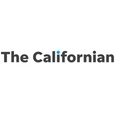Want to be seen here?
Connect your company to the marketplace for free.
Time for a display campaign? Ocast has gathered thousands of solutions in one place so you can get started quickly. Fill in the form and start receiving offers for campaign proposals.

the Times-Standard — the North Coast’s daily newspaper — has survived and thrived for more than a century and a half.The first Humboldt Times was published in September 1854 in Humboldt County. The Hu...

The Bakersfield Californian publishes newspapers. The Company supplies news articles about obituaries, business, advices, politics, jobs, classifieds, sports, lifestyle, opinions, and more. The Bakers...

The Daily Post is a free newspaper in Palo Alto, California, founded in 2008 by the Palo Alto Daily News's founders, Dave Price and Jim Pavelich, who had sold that paper to new owners three years earl...

Merced is the county seat of Merced County, which is located in the heart of California’s fertile San Joaquin Valley. Merced is home to the University of California’s 10th and newest campus, which ope...

The Mendocino Voice is an online news service based and operating in Mendocino County. We cover all aspects of Mendocino life and happenings in a way that's fast and accountable to the people. Since s...

The Lodi News-Sentinel is a daily newspaper based in Lodi, California.The community newspaper is the main source of information about the civic, social and business lives of people in Northern San Joa...

The Appeal-Democrat is the No. 1 local news source for Sutter and Yuba counties, serving readers since 1860.The Appeal-Democrat has grown with the California Mid-Valley community – from the unpaved pa...

The Napa Valley Register is a daily newspaper located in Napa, California. The paper began publication on August 10, 1863. By 1864, the newspaper had dropped “Valley” from its name, becoming simply th...

The Daily Californian is an independent, student-run newspaper serving the UC Berkeley campus and the Berkeley, CA community. It publishes Monday, Tuesday, Thursday and Friday during the academic year...

The Stanford Daily newspaper is the primary holding of The Stanford Daily Publishing Corporation. Founded in 1973, The Stanford Daily Publishing Corporation operates as a California non-profit corpora...

The Daily News is a morning newspaper in Red Bluff, California and Tehama County, California. It was founded in November 1885 and is now owned by Digital First Media, formerly MediaNews Group. MediaNe...

The Redlands Daily Facts is a paid daily newspaper based in Redlands, California, serving the Redlands area. The Daily Facts is a member of Southern California News Group (formerly the Los Angeles New...

The Salinas Californian is the descendant of The Salinas Index, first published March 31, 1871.Nobel laureate John Steinbeck, a Salinas native, first was published in the Salinas Index sometime before...

The Manteca Bulletin is the newspaper of record and daily newspaper for Manteca, California, United States. The Bulletin has been published since 1908. It is currently owned by the locally-owned 209 M...

The Pasadena Star-News is a digital and print news media company based in Pasadena, California. Its coverage area includes the northwestern San Gabriel Valley, including the communities of Alhambra, A...

The Porterville Recorder is a daily newspaper in the town of Porterville, California. Freedom Communications bought the paper in 1974 and sold it to current owner Rhode Island Suburban Newspapers in 2...

The Daily Independent is a daily newspaper serving Ridgecrest, California, United States. It is owned by Gannett. The Daily Independent has been in business since 1926. This small-market daily has its...

The Daily Journal is published six days a week, Monday through Friday plus a combo Weekend edition. The newspaper is distributed throughout San Mateo County and northern Santa Clara County, and all ov...

The Santa Cruz Sentinel became one of the largest independent newspapers in California. It was owned by the McPherson family. Ottaway Community Newspapers, a division of Dow Jones & Company, bought th...

The Ventura County Star is a daily newspaper published in Camarillo, California and serves all of Ventura County. It is owned by Gannett, the largest publisher of newspapers in the United States. It i...
Display advertising, often referred to as banner advertising, involves visual ads placed on various websites, in contrast to text-based search ads that appear in search results on platforms like Google.
While search ads are focused on direct response, display ads aim at building brand awareness through engaging visual content like images or animations. Display advertising also enables retargeting, where ads are redirected to users who have previously visited your website, helping to keep the brand fresh in mind.
With opportunities to measure campaign performance and customize design and target audience, display advertising offers an attractive strategy for brands looking to enhance their online presence and effectively engage their target audiences.
The most effective formats and sizes for display ads vary depending on the platform and target audience, but here are some popular options:
Leaderboard (728x90 px): Positioned at the top of the page, this ad size captures visitors' attention right away.
Medium Rectangle (300x250 px): This size is flexible and can be placed in sidebars or embedded within content.
Large Rectangle (336x280 px): A larger variant of the Medium Rectangle that offers more visible space.
Wide Skyscraper (160x600 px): Often used in sidebars, offering a long, vertical ad space.
Mobile Leaderboard (320x50 px): Optimized for mobile devices and often placed at the top or bottom of the screen.
Consider adhering to industry standards and adapting ad format and size to the specific platform and your target audience. However, the emphasis should be on having well-thought-out content that engages and is relevant to your target audience with clear "Call to Actions" (CTA) to encourage clicks and conversions.
Measuring the effectiveness of your display advertising campaigns is crucial for evaluating the results of your campaign and for fine-tuning future marketing strategies. A first step could be to look over the Click-Through Rate (CTR), which represents the number of clicks your ad receives per view, providing an indication of the ad's engagement level. It is also important to track the conversion rate, which shows how many clicks are converted into desired actions such as sales or leads. Cost Per Conversion is another key indicator that helps you understand the cost-effectiveness of your campaign.
It may also be good to look at the impression rate, that is, how many times the ad has actually reached out and been displayed for brand-building purposes.
One of the major advantages of this type of advertising is its ability for audience targeting, where ads can be directed based on demographics, behavior, and retargeting, enabling a more personalized advertising experience. Moreover, with the use of various analytical tools, it becomes easy to track and measure the campaign's effectiveness by observing data on clicks, conversions, and views, which provides valuable insights.
However, display advertising also has its downsides. Ad blocking is one of the major challenges, where users can choose to block display ads, which in turn reduces the reach and effectiveness of your campaign. Ad fatigue is another downside, where ads that are shown too often can become irritating for the users, leading to decreased engagement and negative brand associations. Despite the ability for audience targeting, audience dilution can be a challenge if precise targeting is not used, which potentially leads to wasted marketing expenses. Additionally, the cost of display advertising can become significant, especially if the campaign is not well optimized to achieve desired results.
The cost of display advertising can vary based on several factors such as website, ad format, and target audience. Besides that, there are different pricing structures one can base on to adjust the cost according to the goal at hand. Below we list different pricing options for display advertising.
CPM (Cost Per Mille or Cost Per Thousand Impressions):
The price for 1000 views of your ad.
Often used for campaigns aimed at increasing brand awareness.
CPC (Cost Per Click):
The price you pay for each click your ad receives.
Used when the goal is to drive traffic to a website or increase interaction.
CPA (Cost Per Acquisition or Cost Per Action):
The price for each specific action or execution, such as a purchase or lead generation, that arises via your ad.
Used when the goal is conversions rather than just views or clicks.
CPL (Cost Per Lead):
The price for each lead generated through your ad.
Used in B2B marketing or for products/services with longer sales cycles.
CPV (Cost Per View):
The price for each viewing of a video ad.
Often used for video-based advertising campaigns.
Each pricing structure suits different goals and campaign types, and choosing the right pricing structure can help maximize the ROI for your display campaign.
Connect your company to the marketplace for free.
No commitments.